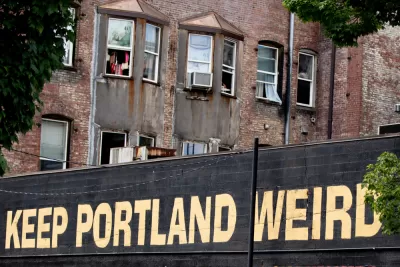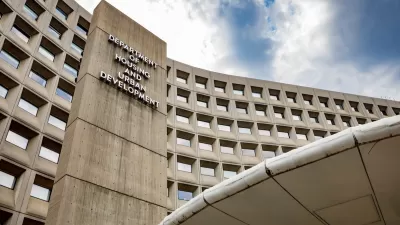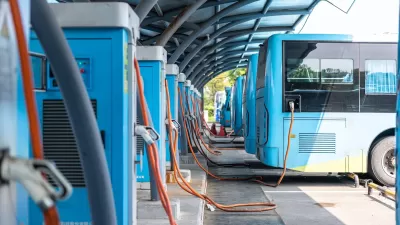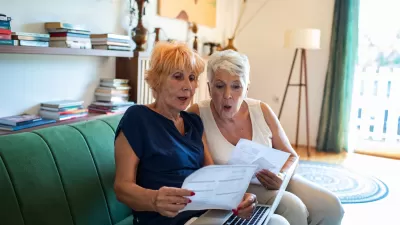A Portland coalition is drawing attention to the disproportionate impacts of unsafe and inefficient housing on low-income households and pushing for legislation that would mandate building improvements and tenant protections.

Sarah Sax reports in High Country News on the equity issues inherent in building safety, focusing on the city of Portland. "On average, Black, Latino and low-income families live in less energy-efficient homes and pay more for their energy, with low-income households spending the most, up to 38% of their income, according to the Oregon Energy Fund." In addition to the cost burden, access to heating and cooling can be a matter of life or death, as last year's deadly heat dome brought into stark focus. According to Sax, "At its core, safe, clean and affordable heating and cooling has become a justice issue."
Sax profiles the Build/Shift Collective, a community group made up of people of color and low-income renters in Portland.
Buildings are one of the largest sources of greenhouse gas emissions in the U.S., but the push to decarbonize them needs to involve more than just emissions, the activists believe. Decarbonization should also account for the unequal effects of climate change, racist housing policies and air pollution on communities of color, and it should strive to make sure everyone has access to a healthy home, not just an energy-efficient one.
The collective wants to ensure that residents don't lose housing in the effort to make buildings more safe and efficient. The group is working with the city to develop a set of rules called the Health, Equitable Energy, Anti-Displacement, Resilience, and Temperature control, or HEART, standards, which "would require landlords to insulate all units properly and have air conditioning installed" and "make sure that renters have the resources to push back whenever housing isn’t up to code, without fear of eviction."
The group is also seeking more representation for historically dismissed voices. "The collective wants more BIPOC representatives to help draft and make policy, but also to change where and how policy is made."
FULL STORY: Portland community leaders bring the heat to building standards

Trump Administration Could Effectively End Housing Voucher Program
Federal officials are eyeing major cuts to the Section 8 program that helps millions of low-income households pay rent.

Planetizen Federal Action Tracker
A weekly monitor of how Trump’s orders and actions are impacting planners and planning in America.

Ken Jennings Launches Transit Web Series
The Jeopardy champ wants you to ride public transit.

Washington Legislature Passes Rent Increase Cap
A bill that caps rent increases at 7 percent plus inflation is headed to the governor’s desk.

From Planning to Action: How LA County Is Rethinking Climate Resilience
Chief Sustainability Officer Rita Kampalath outlines the County’s shift from planning to implementation in its climate resilience efforts, emphasizing cross-departmental coordination, updated recovery strategies, and the need for flexible funding.

New Mexico Aging Department Commits to Helping Seniors Age ‘In Place’ and ‘Autonomously’ in New Draft Plan
As New Mexico’s population of seniors continues to grow, the state’s aging department is proposing expanded initiatives to help seniors maintain their autonomy while also supporting family caregivers.
Urban Design for Planners 1: Software Tools
This six-course series explores essential urban design concepts using open source software and equips planners with the tools they need to participate fully in the urban design process.
Planning for Universal Design
Learn the tools for implementing Universal Design in planning regulations.
Heyer Gruel & Associates PA
Ada County Highway District
Institute for Housing and Urban Development Studies (IHS)
City of Grandview
Harvard GSD Executive Education
Toledo-Lucas County Plan Commissions
Salt Lake City
NYU Wagner Graduate School of Public Service





























